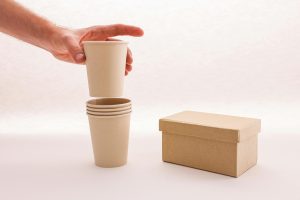Mycelium Insulation: Fungal Tech Reducing Vehicle Emissions
The transportation sector is one of the biggest contributors to greenhouse gas emissions, accounting for 28 percent of total emissions in the United States alone. With the growing concern for climate change, reducing these emissions has become a top priority for many industries. As a result, there has been a surge in the development of new technologies to increase fuel efficiency and reduce carbon emissions. One of the latest innovations in this field is the use of mycelium insulation in vehicles. This innovative technology, also known as “fungal tech,” has the potential to drastically reduce vehicle emissions and combat climate change. Let’s explore the fascinating world of mycelium insulation and how it can help reduce vehicle emissions.
What is Mycelium Insulation?
Mycelium is the vegetative network of fungus that is responsible for its growth and development. It is a web-like structure of tiny thread-like strands called hyphae that extend throughout the soil or other substrates. Mycelium is frequently referred to as the “root structure” of fungi.
Mycelium has been used for centuries to make food, medicine, and traditional artwork. However, the use of mycelium as insulation in the automotive industry is a relatively new development. Mycelium insulation is created by mixing mycelium spores with agricultural waste, such as corn husks or rice hulls, and allowing it to grow into a durable, lightweight material. This process takes only a few days, making it a quick and efficient method of production.
The Benefits of Mycelium Insulation
Reduces Vehicle Weight
One of the major benefits of mycelium insulation is its lightweight nature. Traditional insulation materials, such as fiberglass and foam, add significant weight to a vehicle, which can reduce fuel efficiency and increase emissions. Mycelium insulation, on the other hand, is lightweight and can reduce the overall weight of a vehicle by up to 50 percent, resulting in better fuel efficiency and lower emissions.
Improves Thermal Performance
Mycelium insulation has excellent thermal properties, making it an ideal material for vehicle insulation. It acts as a natural insulator, keeping the interior of a vehicle cool in the summer and warm in the winter. With mycelium insulation, vehicles can maintain a comfortable temperature without the need for excess energy consumption, further reducing emissions.
Environmentally Friendly
The production of traditional insulation materials, such as foam and fiberglass, involves the use of harmful chemicals and produces a significant amount of waste. Mycelium insulation, on the other hand, is produced using agricultural waste and does not require any toxic ingredients. This makes it a more sustainable and eco-friendly option for vehicle insulation.
Reduces Vehicle Emissions
With its lightweight and thermally efficient properties, mycelium insulation helps reduce a vehicle’s overall energy consumption. This results in lower emissions, making it an excellent option for reducing the carbon footprint of the transportation industry. According to a study by the National Renewable Energy Laboratory (NREL), using mycelium insulation can save up to 5.5 billion gallons of gasoline and reduce carbon emissions by 52 million metric tons annually in the U.S. alone.
The Future of Mycelium Insulation
The use of mycelium insulation in vehicles is still in its early stages, but the potential for its application in other industries is vast. Mycelium-based materials can also be used for packaging, biodegradable building materials, and even as a substitute for plastic. With its lightweight, environmentally friendly, and cost-effective properties, mycelium insulation has the potential to revolutionize the way we think about insulation materials. As more and more companies invest in this technology, we can expect to see mycelium insulation become a widespread solution for reducing vehicle emissions and promoting sustainability.
Final Thoughts
Mycelium insulation is a fascinating and innovative technology that has the potential to transform the transportation industry and significantly reduce vehicle emissions. Its lightweight, thermally efficient, and environmentally friendly properties make it a promising alternative to traditional insulation materials. As we continue to look for ways to combat climate change and reduce our carbon footprint, new technologies like mycelium insulation will play a vital role in creating a more sustainable future for generations to come.









